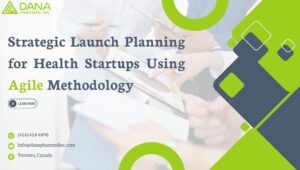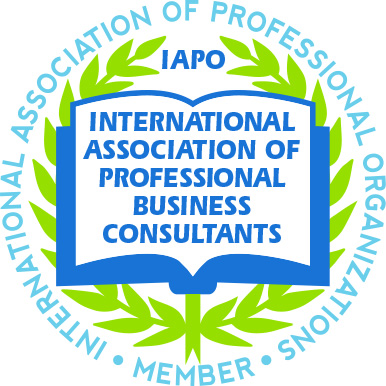Maira Ahsan is an Internationally graduated registered Dietician who recently joined us to bring her knowledge and experience to our community leading to a Healthier Life and Balanced Diet. Her academic knowledge of food combined with her personal experience in Orienta
Introduction:
Pregnancy complications are different types of medical conditions that arise during pregnancy. They can affect the health of the mother, the baby, or both. Most women have health issues that happen during pregnancy, while others have health problems that could lead to complications before becoming pregnant. To reduce the risk of pregnancy difficulties, women should consult a doctor before and during their pregnancy.
Complications during Pregnancy
The sign and symptoms of pregnancy can range from mild to serious conditions, maybe life-threatening disorders. It’s not always easy for a woman to tell which symptoms are acceptable or normal for her and which are not. Physical and mental disorders that affect the mother’s or the baby’s health can occur during pregnancy. Many issues are minor and do not progress; nevertheless, when they do, they can be harmful to the mother or her child. Keep in mind that there are options for dealing with issues that arise throughout pregnancy. If you have any concerns during your pregnancy, always contact your prenatal care provider.
The Most Common Complication of Pregnancy:
Gestational Diabetes:
Gestational diabetes develops when a woman who did not have diabetes before pregnancy develops it while pregnant. Parts of your meals are normally digested into a sugar called glucose by your body. Glucose is your body’s primary energy source. After digestion, glucose enters your bloodstream and provides energy to your body. Your pancreas produces the hormone insulin to transport glucose from your bloodstream to your body’s cells. Hormonal changes are caused by pregnancy because the body either does not generate enough insulin or does not utilize it properly, resulting in gestational diabetes. Instead, the glucose in your blood builds up, resulting in diabetes, often known as high blood sugar.
Anemia
Anemia is a condition in which your body has a lower-than-normal quantity of red blood cells. You may feel fatigued and weaker than usual if you have anemia, and your skin may appear pale. Anemia can be caused by a variety of factors, and your doctor will need to address the underlying cause of your anemia. Because most occurrences of anemia are caused by a deficiency, taking iron and folic acid supplements during your pregnancy may be beneficial.
Hypertension:
The term high blood pressure, commonly known as hypertension arises when the arteries that deliver blood from the heart to the body organs narrow, as a result of this, the pressure on arteries increases. This can make it difficult for blood to reach the placenta, which delivers nutrition and oxygen to the fetus throughout pregnancy. Reduced blood supply can cause the fetus’ growth to be slowed, putting the mother at risk for preterm labor and preeclampsia. Women who have high blood pressure before becoming pregnant will need to monitor and regulate it during their pregnancy, using medications if necessary.
Nausea and Vomiting
Nausea and vomiting are common throughout pregnancy, especially in the first trimester, some women have more severe symptoms that last into the third trimester. The reason for hyperemesis gravidarum is unknown. Hyperemesis gravidarum causes persistent nausea, weight loss, decreased appetite, dehydration, and dizziness in pregnant women. Women who are affected may need to be admitted to the hospital to get fluids and nutrition. Some women feel better after the 20th week of pregnancy, while others have symptoms through the pregnancy.
Infections:
Many infections, such as the common cold or a passing stomach virus, are protected from your baby during pregnancy. However, some infections can injure you, your baby, or both of you. Simple precautions, such as hand washing and avoiding specific foods, can help you avoid infections. You may not always be aware that you have an infection, and you may not even feel ill. Consult your health care practitioner if you feel you have an infection or are in danger. HIV, viral hepatitis, STDs, and tuberculosis infections can all affect pregnancy and have serious consequences for a woman, her pregnancy, and her baby.
Preeclampsia
Toxemia is another name for preeclampsia. It happens after the first 20 weeks of pregnancy and results in excessive blood pressure as well as probable kidney issues. The birth of the baby and placenta is the recommended treatment for preeclampsia to prevent the disease from developing. The following are some of the risk factors:
- If your prior pregnancy had resulted in preeclampsia
- High blood pressure, diabetes, kidney disorders, and systemic lupus erythematosus are examples of existing conditions.
- If you are pregnant for the first time
- If you’re 35 years old or older
- Two or more fetuses in the womb
- If you are Obese
Miscarriage:
The term “miscarriage” refers to a pregnancy loss that occurs before 20 weeks due to natural reasons. Vaginal spotting or bleeding, cramps, or fluid or tissue passing from the vagina are all symptoms. However, vaginal bleeding does not necessarily indicate that a miscarriage will or is occurring. 9 Women who see this symptom at any stage during their pregnancy should notify their doctor.
Preterm Birth:
When you go into labor before week 37 of your pregnancy, it is known as preterm labor. This occurs before your baby’s organs, such as the lungs and brain, have completed their development. Certain drugs can stop labor. To prevent the baby from being born too soon, doctors frequently advise bed rest.
Stillbirth
Stillbirth refers to the “loss of a pregnancy after the 20th week of pregnancy”. In over half of all reported cases, health care providers are unable to determine the source of the loss. Chromosomal abnormalities, placental disorders, poor fetal growth, chronic health difficulties in the mother, and infection are all factors that can lead to stillbirth.
Conclusion:
During your pregnancy, you may experience difficulties that require medical attention. Take your all appointments regularly throughout your pregnancy, even if you’re feeling fine. Regular prenatal care can assist you and your health care provider in diagnosing and perhaps preventing serious conditions early on. Complications of pregnancy, such as gestational diabetes and preeclampsia, can be life-threatening for both you and your baby. If you have any of these illnesses, talk to your doctor about getting treatment to help you manage them.
Reference:
https://www.ncbi.nlm.nih.gov/pmc/articles/PMC5575578/
https://pubmed.ncbi.nlm.nih.gov/10731177/
https://pubmed.ncbi.nlm.nih.gov/11438131/
https://www.ncbi.nlm.nih.gov/pmc/articles/PMC3269902/?tool=pubmed
https://www.womenshealth.gov/pregnancy/you-are-pregnant/pregnancy-complications.html
https://www.cdc.gov/reproductivehealth/maternalinfanthealth/pregnancy-complications.html
https://www.hindawi.com/journals/jp/
l Food Ingredients can help you reach your daily and weekly goal for a healthy happy life. Just Contact Us and Aks for her. Thank You









